IN ENGLISH
Mysteries of the Parallel Service
Objavljeno prije
14 godinana
Objavio:
Monitor online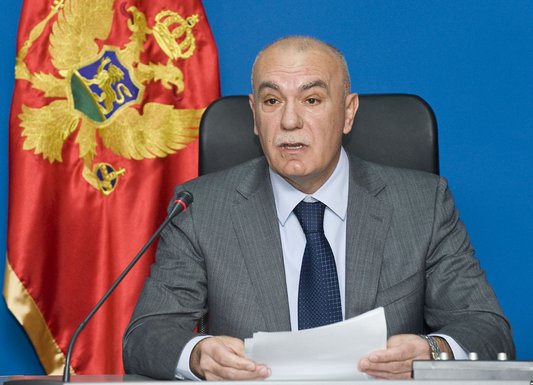
Boro Vučinić has recently been appointed the sixth Director of the Secret Services since the introduction of a multi-party system in Montenegro. He took over the position from Vladan Joković, who resigned last winter “motivated by personal reasons.” Little did anyone believe in such an explanation, since Joković resigned after the publication of a (not)falsified list of conversations between Igor Lukšić and Milan Roćen with Darko Šarić, an affair that implied alleged links between the Prime Minister and the Minister of Foreign Affairs and European Integrations with the head of organized crime whose associates in Montenegro are now convicted by non-enforceable judgements of money laundering. In the context of Montenegro approaching full NATO membership, the National Security Agency (ANB) is in focus, which should, together with other state bodies, actively participate in the implementation of measures for criminal prosecution of perpetrators, co-perpetrators, instigators, supporters and/or other persons who are in any way related to money laundering. Such an ANB role is described in the Second Annual National Program, a document submitted by Lukšić’s government in September 2011 to NATO.
However, well-known and proven facts compromise fine-grained writing. Darko Šarić, for instance, smoothly passed the security check of the ANB. It has been documented that with Safet Kalić, now accused of money laundering, secret service officers had unusually cordial contacts for at least a decade.
Zoran Lazović and Duško Golubović, high-ranked ANB officials, are most often publicly connected with the criminal milieu. Despite the fact that the Prime Minister Lukšić indirectly advised them to retire on 16 January, both of them are still active, although, it is claimed, without concrete operational responsibilities. However, this in reality does not mean much, because their roles are only partially determined by a special act of systematization.
According to Nebojša Medojević, Lazović and Golubović are the link with a group of officers specializing in espionage, who for years allegedly worked “in a parallel secret service for the needs of Milan Roćen and DPS president Milo Djukanović”. The subjects of their supervision are judges, prosecutors, non-governmental sector activists, businessmen, competitors or factions in the establishment, as well as “competitors in criminal matters and in public procurements”. Parallel service was reportedly formed because ANB’s maneuvering space for abuse was reduced.
Discussions were held on 15 February, at a session of the parliamentary Defense and Security Committee, when Boro Vučinić threatened Medojević before the appointment as the director of ANB, alternatively, he said that “they would deal with him if the prosecutor does not do it.” He tried to deny that in 2007, with no written evidence of compulsory security checks, prominent members of the former Military Security and Military Intelligence Agency, known as KOS and VOS, were employed and later deployed to extremely sensitive places in the Ministry of Defense.
Some of them, such as Colonel Vladislav Vlahović (now the Head of the military segment of the Montenegrin Mission in Brussels) and Lieutenant Colonel Darko Burić (on duty in the General Staff of the Montenegrin Army), were men of the General Branko Krga, Chief of the Intelligence Administration in two mandates (1994-1997, 1999-2001) and then until 2005 as the Deputy and then Chief of the General Staff in Belgrade.
Medojević claims that a parallel service was formed “in order to maintain ties with the Russian security structures with which military intelligence agents had previously cooperated.”
The Officers Vlahović and Burić ran the 123rd and/or 3rd center of the Intelligence Administration in Podgorica at different intervals. Their mentor, Branko Krga, has been in the vortex with Milan Roćen for two decades, because until 1994, they had served together in Moscow – Krga as the military attaché, while Roćen was the Charge d’Affairs at the FRY Embassy. Recently, for the Sarajevo-based magazine Dani, Krga talked about his recollections from that time, so he acknowledged that they provided contacts in Moscow to Radovan Karadžić.
After Krga, the military attaché in Moscow and Roćen’s colleague was Radoslav Škorić, who was later general, from 2002 to 2003, the Head of the Intelligence Administration who formed the 3rd center in Podgorica and appointed Lieutenant-Colonel Burić as the Chief. Škorić was dismissed after one lieutenant colonel was arrested in Belgrade in September 2003 for the crime of espionage in favor of Russia.
Several officers accused of illegal espionage, according to Vučinić’s permission, gave public statements and tried to deny Medojević’s allegations. All of them, as the proof of their correctness, are referring to the fact that in 2009, ANB checked them so that they could obtain a security clearance for access to classified NATO information.
However, this is a procedure on a different basis, not a background check that had to be done by 2007 and on which Medojević insisted. Three members of ANB, with the previous history of undermining Belgrade’s military agency work ahead of the referendum, were then directly in charge of the checks at the Ministry of Defense: Božidar Lakić (now retired), Predrag Abramović (transferred to a bank to a security position) and Veselin Mazić.
In the Second Annual National Program, Igor Lukšić’s government reported in the autumn to NATO that “after the completion of the assessment of vulnerability, the updated plans for keeping and handling classified information were adopted”.
NATO reportedly observed serious problems in the security sector of Montenegro. There is a fear of or possible confirmation of the illegal leakage of NATO information submitted to the Directorate for the Protection of Classified Information, which is kept in the building of the Ministry of Defense, and for whose security ANB is responsible.
Such a conclusion is indirectly derived from the fact that last year the ANB appointed a special “responsible person” for performing internal control over the implementation of the measures for the protection of classified information. Previously, the Montenegrin officials claimed that the security of NATO information was maximum. In the meantime, the Ministry of Defense has launched contradictory information about the parallel service. They said at the beginning of February that this department and the Montenegrin Army “do not have and did not have eavesdropping equipment and devices”. Later on, the new Minister of Defense, Milica Pejanović-Djurišić, alluding to their obsolescence and inefficiency, mentioned certain “megaphones, dictation machines and record players”.
The Army without the Service
For years, Boro Vučinić unsuccessfully tried or just pretended to try to legalize, without ANB, a special, transparent, “military service”, which is, after all, a NATO standard.
However, the military security operations are still in the jurisdiction of ANB. In April of last year, the Law on Amendments and Supplements to the Law on ANB was adopted, which “extended the competencies of the Agency to issues of importance for the defense interests of Montenegro and fulfillment of strategic security goals and interests (intelligence and counterintelligence activities in the field of defense).”
On the data gathered in this area, ANB reports to the Council for Defense and Security (Filip Vujanović, Ranko Krivokapić, Igor Lukšić), as well as to the Minister of Defense and the Chief of General Staff of the Montenegrin Army.
On 29 July 2011, ANB signed an Agreement on Cooperation in the Field of Intelligence and Counterintelligence Operations with the Ministry of Defense, which, among other things, regulated the sending of ANB representatives to the Ministry of Defense, which occurred only at the beginning of December last year.
The Minister of Defense, Milica Pejanović-Djurišić has recently said that the special military service “has not yet been formed”.
Counterattack against Medojević
The counterattack against Nebojša Medojević, who for two or three years has been insisting on the fact that an illegal secret service is operating within the Ministry of Defense, was also joined by Ivan Mašulović, appointed from last winter as the Assistant Minister of Defense for the defense policy, previously the Head of the Criminal Investigation Police, security guard at the Ministry of Foreign Affairs of Milan Roćen, Head of ANB for Podgorica, advisor of Igor Lukšić.
Mašulović as part of the public reaction on 16 March – only three days after Milica Pejanović-Djurišić was appointed – said that he would press charges against Medojević “because of the untruths”. He did not deny the connection with Andreja Savić, former Director of the Security and Information Agency of Serbia, with whom he published certain police textbooks – what the Monitor wrote about – but on that occasion Mašulović stated:
„I have never seen or heard from Mr. Branko Krga, nor have I talked to him on any basis, and I simply do not know him. Also, I have never held a single lecture at the Academy for Diplomacy and Security (ADB) in Belgrade, nor have I physically ever entered this facility. The only connection I have with ADB is that one of my books is used as supplementary literature in the field of security management”.
It is not clear when Mašulović is telling the truth, because he denies himself. In his chrestomathy “Security of the European Union” (Podgorica, 2009), co-authored by Andreja Savić, Mašulović wrote in his biography that he was “an associate” of ADB.
The founder of ADB is a controversial businessman Nenad Djordjević, who until 2007 was the owner of a part of the island of Hawaii near Budva. Andreja Savić and Branko Krga are lecturers at ADB.
At the end of 2011, Ivan Mašulović, during the mandate of Boro Vučinić, was appointed as the Assistant governing the Sector for Defense Policy, and in that way, according to the systematization of the Ministry of Defense, he oversees the operational links of official Podgorica to NATO, including the Directorate for the Protection of Classified Information, military-diplomatic representatives, Department for International Cooperation and Department for NATO and the European Union.
During the visit to the headquarters of ANB as a member of the Security and Defense Committee, Nebojša Medojević asked the competent officers whether foreign partners, including the US DEA (Drug Enforcement Administration), asked for checks on whether Ivan Mašulović also “disclosed information” to Dragan Fric Dudić.
He did not get a specific answer to that question.
For a few years, Mašulović was the head of CB Herceg Novi, under whose jurisdiction was Kotor, the town from which Dudić worked.
Vladimir JOVANOVIĆ
Komentari
IZDVOJENO
IN ENGLISH
GRENELL’S (UN)OFFICIAL VISIT TO WESTERN BALKANS: Backroom Deals in Montenegro Again
Objavljeno prije
3 mjesecana
18 Augusta, 2025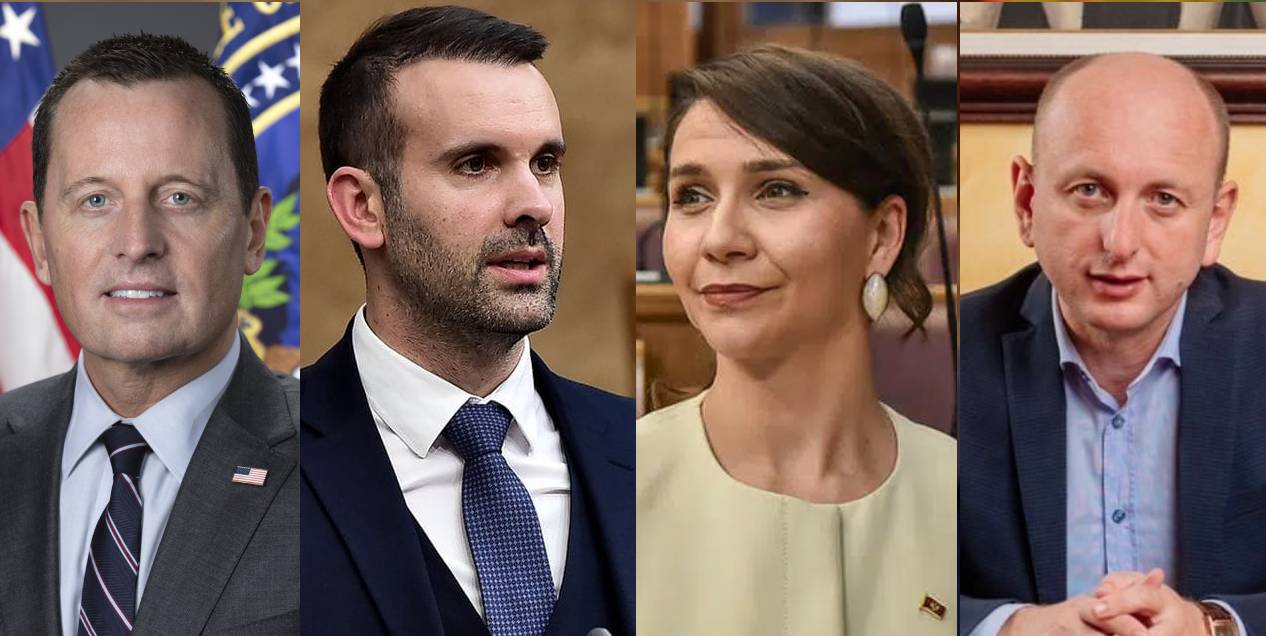
Richard Grenell, former U.S. envoy for the Serbia–Kosovo dialogue and once a powerful figure in Donald Trump’s first administration, reappeared in the Balkans this August on what was labeled an “unofficial visit.” His meetings and media appearances, however, looked suspiciously like an improvised diplomatic tour. Still, regional interlocutors who interacted with Grenell during his visit say that his vocabulary and tone sounded like that of an envoy on official mission, though he never formally claimed such a role. He even hinted, indirectly, that next year he would be back in a far more powerful position — effectively pitching himself
Last Thursday afternoon, Antena M reported that Milorad Dodik, the recently convicted president of Republika Srpska (RS), met with U.S. special presidential envoy Richard Grenell at the One and Only hotel in Portonovi, Montenegro. While authorities in Banja Luka did not confirm the meeting, it was notable that a rally organised by Dodik’s party (the Independent Social Democrats), originally planned as a protest related to his court verdict, was abruptly canceled. Antena M further reported that an unnamed Republican congresswoman was present at the meeting. No Montenegrin officials were involved or played any role in organising the encounter at the resort near the city of Herbage Novi.
However, Monitor received information, which could not be independently verified, suggesting that Grenell also met with Montenegro’s Prime Minister Milojko Spajic and Minister Majda Adzovic on the same day. Allegedly, discussions were uncomfortable and centred around recent turbulence related to airport concession deals in Montenegro. Officials close to the prime minister denied that any such meeting took place, while Minister Adzovic did not answer inquiries.
Earlier, on July 19, Nik Gjeljoshaj who simultaneously serves as Deputy Prime Minister, Economic Development Minister, and chair of the commission overseeing airport concessions informed the public that he had met with Grenell in Washington. In a statement from the U.S., he expressed gratitude to Grenell as “a great friend of the Balkan countries,” and requested support for the country’s accession toward European Union and stronger ties with the United States. During his U.S. visit, Gjeljoshaj claimed to have met in an official capacity with the FBI Director and his “senior leadership team.” Discussions were said to revolve around “the essential importance of upholding the rule of law to attract investments from Western countries and the U.S.” However, the Government publicly denied sending him and said that Gjeloshaj traveled to the U.S. privately. The Deputy PM did not provide any photographic evidence of these meetings. Before his trip, Mr Gjeloshaj was visibly dissatisfied with the tender outcome and the failure of the U.S.–Luxembourg bidder for the airport concessions that he was in favour of.
The day after the Portonovi meeting with Dodik, borba.me reported that on the evening of August 8 “in one Montenegrin coastal town”, Milan Knezevic, the leader of the Democratic People’s Party (DNP) met with Grenell. The meeting reportedly lasted nearly two hours, marked by open dialogue and exchange of of views.
The portal, considered an informal outlet of the pro-Serbia and pro-Russia “For the Future of Montenegro” (ZBCG) coalition, reported that Knezevic “detailed to Grenell the current political situation” – including internal relations in the government and various security, economic and international challenges. The interlocutors agreed “to continue communication and exchange of experiences,” with a prospect of a follow-up meeting in the future .
After departing Montenegro, Grenell continued on to Croatia. He shared on Instagram a photo of him posing with friends in the old town of Dubrovnik. The same day the Kosovar portal Gazeta Express reported that during his stay in the Western Balkans, Grenell met with Shkëlqim Devolli, a shareholder of the prestigious Devolli Corporation, founded by his father Ibrahim Devolli. Shkëlqim Devolli is a regular visitor to the U.S., often seen with influential figures like Republican senators Roger Wicker and Ted Cruz, Texas Governor Greg Abbott, and CIA Director John Ratcliffe.
Gazeta Express highlighted that the main topic of discussion was “stimulating economic growth in Kosovo through foreign investment.” It also noted that Grenell “confirmed the Trump administration’s continued commitment to supporting Kosovo and the Western Balkans,” thus promoting peace, stability, and prosperity. Just like with Knezevic and borba.me, the Gazeta Express account carries an official-sounding narrative, with the identical promise that the parties will “continue the dialogue and explore concrete ways to implement joint projects that would bring sustainable economic benefits and strengthen U.S.–Kosovo relations.” Although the location of the meeting was not disclosed, according to Monitor’s information, Grenell visited the Albanian seacoast prior to coming to Montenegro. In Albania he held a series of meetings with government officials and gave an interview to Klan Kosova – published on August 9.
Allegedly, Grenell was also seen in the region with Serbian Minister of Finance Sinisa Mali. It’s worth recalling that at the end of October 2023, Serbian President Aleksandar Vucic awarded Grenell the Order of the Serbian Flag, First Degree, for “outstanding merits in developing and strengthening peaceful cooperation and friendly relations between Serbia and the United States.” A similar decoration had been awarded to him by Kosovo three years earlier.
Still, the meetings with Albanian officials were not publicized—partly due to uncertainty over Grenell’s status, as he is on poor terms with key figures in President Trump’s administration—Secretary of State Marco Rubio and Trump’s chief of staff Susie Wiles. Grenell’s great influence during Trump’s first mandate is a thing of the past, at least for now, according to U.S. press reports. His actual job at this moment is acting director of the John F. Kennedy Center for the Performing Arts.
Regional interlocutors who were in Grenell’s circle during the visits say his vocabulary sounded as if he were on an official mission, even though he never formally said so. He also indirectly suggested that next year he would hold a significantly higher position than now, thus pitching himself in the region.
When asked whether Grenell was acting in an official capacity in Montenegro and whether it had mediated the meeting with Dodik, the U.S. Embassy in Podgorica referred Monitor to the State Department’s European desk. After the same inquiry, the State Department replied that Monitor should contact Grenell’s office directly. No response arrived prior to this publication. Unofficially, Washington sources told Monitor that the State Department had nothing to do with Grenell’s regional visit and that he was acting as a “freelance”.
Regardless of Grenell’s current status or his career’ trajectory, a big question remains as to how prepared Montenegro is for increasingly unpredictable international relations. So far, bilateral relations between Spajic’s government and the United States have not been impressive. A week ago, U.S. Secretary of State Rubio received Serbian Foreign Minister Marko Djuric—formerly Serbia’s ambassador in Washington, who built a strong Serbian caucus in the U.S. Congress. Rubio announced a “strategic dialogue with Serbia” for the end of the year. This is a process the State Department often carries out to strengthen bilateral relations. It entails high-level discussions on a wide spectrum of topics—defence, security, energy. Djuric emphasized that Serbia requested U.S. government support for issues important to Belgrade, and that his trip to Washington was significant for repositioning Serbia with the new administration. There’s no doubt that Montenegro is on Serbia’s top priorities list.
From the Montenegrin side, however, the current ambassador to the U.S. and the government seem largely indifferent to the disappearance of the Montenegrin caucus and show little effort in building strong ties with Trump’s administration. Previous head of mission in Washington, Nebojsa Todorovic, repeatedly briefed the government and foreign ministry well before the presidential elections that Trump’s return was inevitable and to prepare for it. Even President Jakov Milatovic’s visit to Ohio for the NATO Parliamentary Assembly meeting in Dayton (23-26 May), to mark 30 years of the Dayton Peace Agreement, was poorly prepared. Neither the embassy nor the foreign ministry knew that the U.S. state delegation would only be present on the first day in Dayton. Only thanks to intervention by the former ambassador did Milatovic’s delegation arrive a day earlier. That paved the way for Milatovic’s meeting with Deputy Secretary of State Christopher Landau—which, at such a gathering and outside the capital, carried considerable significance. Similar mistakes by the foreign ministry, ambassadors, and chargés d’affaires have also occurred in European capitals, with serious oversights about dates and availability of European officials.
The lack of serious diplomatic effort and narrow party interests could cost Montenegro dearly. Neighbouring countries, more skilled in lobbying, may shrewdly exploit this for their own interests—which are often at the expense of Montenegrin interests.
Jovo MARTINOVIĆ
Komentari
IN ENGLISH
Government Summons Ambassadors for Consultations and Instructions: A Foreign Policy Tightrope
Objavljeno prije
7 mjesecina
12 Aprila, 2025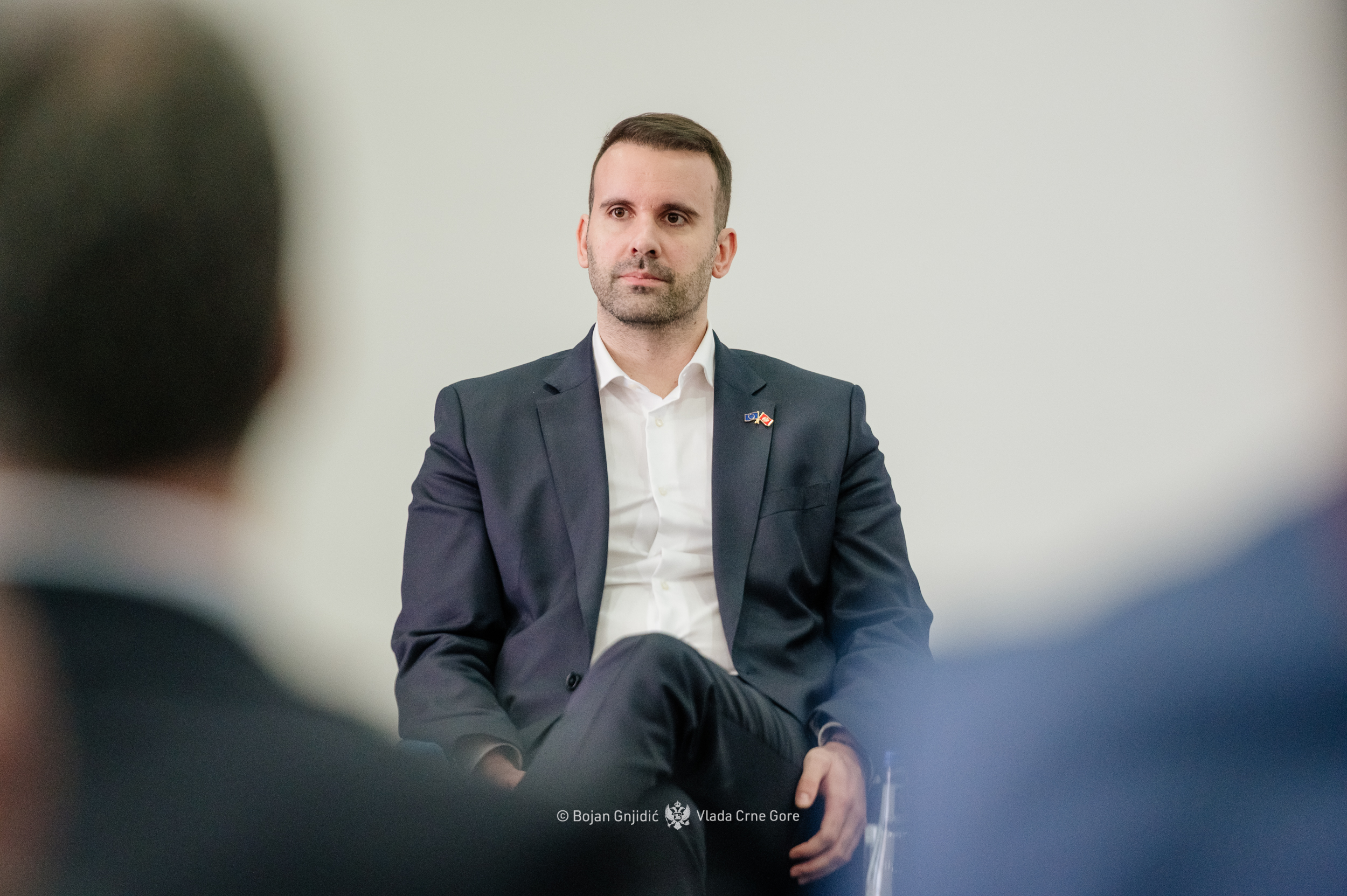
Prime Minister Milojko Spajic recently held a series of individual meetings with Montenegrin ambassadors—from Ukraine to Europe to the United States. Informal sources within the government say that during these meetings, the Prime Minister outlined a new geopolitical landscape shaped by Donald Trump’s return to power in the U.S. and evolving dynamics with the European Union
At the end of February, the Ministry of Foreign Affairs (MFA), led by Minister Ervin Ibrahimovic, summoned nearly all Montenegrin ambassadors stationed in Europe and the U.S. for urgent consultations, set to begin on March 6. The move sparked anxiety among some diplomats, who feared a repeat of the events of November 15, 2024, when three ambassadors were abruptly dismissed.
Monitor finds out that Spajić met separately with key diplomats, including Ukraine-based Borjanka Simicevic and U.S.-based Jovan Mirkovic. However, the concerns of mass dismissals proved unfounded. Instead, sources say the Prime Minister emphasized Montenegro’s continued commitment to the EU and instructed ambassadors to maintain a clear, pro-European stance. At the same time, he advised them against making any public criticisms of the United States or commenting on current rifts between the U.S. and its European allies.
Montenegro’s calibrated position became evident on March 11 at a meeting of top European military officials in Paris, where strategies for supporting Ukraine were discussed following Washington’s announcement of a suspension in military aid. The U.S. was not invited to the Parish meeting as the European leaders were keen to show they could step up independently if needed. Though an AP report initially stated that only Montenegro and Croatia, among NATO’s European members, failed to respond to the invitation, the Prime Minister’s Security and Defense Advisor, Todor Goranovic, told Radio Free Europe (RFE) that Montenegro would indeed participate. However, only the deputy military representative to NATO in Brussels attended because “Chief of General Staff Zoran Lazarevic was officially visiting Bulgaria at the time” – Goranovic explained.
Meanwhile, dissatisfaction is growing within Montenegro’s ruling coalition over Ambassador Mirkovic’s performance (or the lack thereof) in Washington. Tensions reportedly flared after a mid-February meeting with U.S. officials where he suggested that the fall of Serbian President Aleksandar Vucic could weaken some of his Montenegrin puppets. The details of the aforesaid meeting could not be independently confirmed. The subsequent report sent to Podgorica reportedly angered Spajic’s coalition partners from the former Democratic Front (DF). Although the DF was not directly mentioned in the report, its officials saw themselves as being referred to by the ambassador. One of them even retorted that those remarks would be a ground for the ambassador’s recall.
Discontent also emerged from the opposite ideological camp. Metropolitan Boris of the Montenegrin Orthodox Church (MOC) sent a protest letter to Minister Ibrahimovic, complaining that the embassy in Washington did not engage with the MOC delegation during their visit. The embassy, he wrote, failed to meet with them or assist in organizing meetings with U.S. officials. Furthermore, Metropolitan Boris complained that the embassy was “ignorant of some names and institutions that we wanted to reach out to”. He directly blamed the ambassador for the embassy’s dismissive stance.
As Monitor has previously reported, the embassy in Washington is increasingly out of sync with developments in the U.S. The once-prominent Montenegrin Caucus in Congress, which boasted 42 members under former ambassador Srdjan Darmanovic, has effectively dissolved. It’s now reduced to a single member—Congresswoman Chellie Pingree from Maine. Darmanovic had successfully lobbied to counter opposition to Montenegro’s NATO membership, despite concerns over ties of the Djukanović government with foreign criminal networks and Russian intelligence services.
Pingree reportedly sent multiple letters to the embassy criticizing the lack of engagement, but received no response. Monitor also reached out to her office twice for comment but had not received a reply at the time of publication.
Diplomatic affairs aren’t running smoothly in Europe either. In late January, the government approved the appointment of 14 new ambassadors. The list was coordinated with President Jakov Milatovic, whose signature is required for the appointments. Opposition parties and members of the pro-Serbian bloc raised objections, particularly over the inclusion of figures associated with the long-ruling Democratic Party of Socialists (DPS) and former foreign minister Milan Rocen.
One such appointee is Dragana Radulović, a longtime diplomat and former advisor to Prime Minister Dusko Markovic. She was posted to New York as Montenegro’s representative to the UN. She has been in diplomacy since 2000. Internal sources indicate that Veljko Milonjic initially hoped for the post in New York but was instead sent to Warsaw. Milonjic is remembered for his involvement in the so-called “cocaine affair” of 2015 when he was the head of Montenegro’s consulate in Munich. A truck from Munich carrying drugs under diplomatic seal was intercepted at the Austrian border. Though the Ministry of Foreign Affairs denied direct involvement, the incident cast a long shadow. Milonjic denied wrongdoing but was quietly recalled while the Consulate General in Munich was closed down. Milonjic was later appointed to a senior diplomatic post despite the scandal never being prosecuted. The truck driver, Sasha Mugosha, was sentenced to six years in prison. He was released after serving two and a half years and deported to Montenegro.
In March, the government announced that former German Bundestag member Holger Haibach had been appointed as a senior special advisor to Prime Minister Spajic, beginning January 1. Haibach will advise on regional relations in the Western Balkans and support EU accession efforts. His services will be funded by Germany’s Center for International Peace Operations (ZIF). While Haibach’s selection followed a public hiring process, sources in the diplomatic community question his current influence in Berlin. Haibach, a former CDU member of parliament, left office in 2011. Meanwhile, Veljko Kustrov, a Herzegovinian with close ties to Spajic, is considered his main point of contact in Germany.
Perhaps the most controversial diplomatic appointment so far is that of Dusanka Jeknic, a figure from the 1990s linked to the Djukanovic regime and repeatedly associated with cigarette smuggling. However, the Italian prosecutors could not present sufficient evidence against her in court. Jeknic was assigned to the embassy in Turkey after President Milatovic purchased property from her in Podgorica. Milatovic later claimed he had not been consulted on her appointment, stating that such decisions were under the MFA’s jurisdiction. He emphasized that his property purchase had been properly reported to Montenegro’s Agency for the Prevention of Corruption.
Previously, Milatovic had criticized the appointment of Predrag Drecun to lead Montenegro’s Investment Development Fund because of his close ties to the Djukanovic regime.
Montenegro is yet to drive a long and bumpy road before it gets a professional diplomatic network.
Jovo MARTINOVIĆ
Komentari
IN ENGLISH
TWILIGHT OF MONTENEGRIN INTERESTS IN AMERICA: Prayer Breakfast Instead of Real Diplomacy
Objavljeno prije
7 mjesecina
12 Aprila, 2025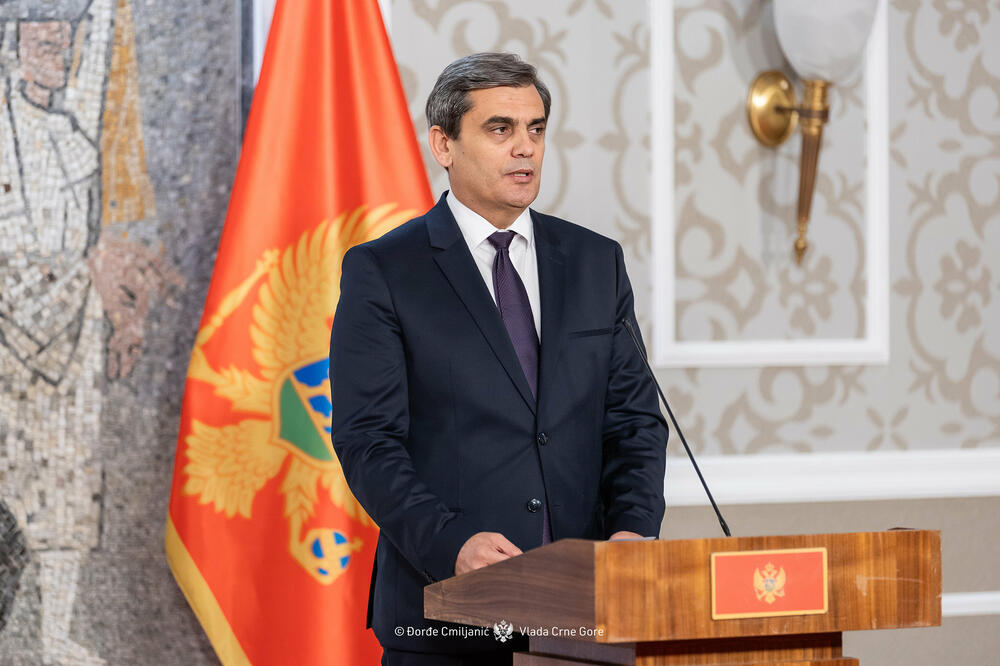
Aside from occasional trips and engagements with diaspora organizations, Montenegro shows little sign of having a coherent lobbying strategy in the United States. With the retirement of Congressman Doug Lamborn, the Montenegrin Congressional Caucus has dwindled to just one representative: Congresswoman Chellie Pingree from Maine
The 73rd annual National Prayer Breakfast in Washington recently took place, drawing more than three thousand leaders and prominent figures from politics and civil society from around the globe. Over the course of two days, participants had opportunities to network and exchange ideas at the Hilton Hotel, under the official patronage of the U.S. President.
Invitations were extended to a broad range of Montenegrin officials, including Prime Minister Milojko Spajic, Foreign Minister Ervin Ibrahimovic, Deputy Prime Minister for Economic Policy Nik Djeljoshaj, Minister of Urban Planning Slaven Radunovic, Minister of Transport Maja Vukicevic, and Minister for Human and Minority Rights Fatmir Djeka. Parliamentary invitees included many MPs, both from the opposition and the majority. Former President Milo Djukanovic and his close aide Branimir Gvozdenovic received invitations as well as several other ex officials. Also in attendance was Vijesti columnist and co-founder Zeljko Ivanovic—reportedly the only one whose travel wasn’t funded by taxpayers.
Branimir Gvozdenovic is often featured in pro-DPS (Democratic Party of Socialists) media as a regional liaison for the Prayer Breakfast. However, his name is absent from the official records of the event’s organizing foundation. Meanwhile, the Montenegrin delegation was accompanied by support staff including security, administrative personnel, and translators — necessary, since only Minister Vukicevic speaks fluent English. Translation was required for Djukanovic, Gvozdenovic and most MPs.
The cost of attending the Prayer Breakfast—including registration fees, three nights in a hotel, airfare, and daily allowances (currently €112 per day) — typically totals around $3,000 per person. When accompanying staff is added, the total bill reaches into the tens of thousands of euros. Out of the entire group, only Ministers Ibrahimović and Djeka were scheduled for official meetings at the U.S. State Department.
Minister for the Diaspora Adem Azemovic, representing the Bosniak Party, made his second trip to the U.S. in a month, accompanied by two associates. In late December, he met with Naser Nika, head of the Albanian-American Association of Staten Island. After the New Year he returned to meet him again. When asked why a second meeting was necessary, the Ministry explained that the first encounter had been brief, and the second was based on an official invitation. The association, which includes Albanian Montenegrins living in Staten Island, was praised for promoting Montenegro in New York.
Azemovic also visited the New York State Assembly, which is reportedly considering hosting Montenegro’s Independence Day celebration. His office described this as an opportunity to mark one of the country’s most significant holidays in a high-profile setting. Interestingly, Montenegro’s Independence Day was already celebrated at New York City Hall on May 23, 2024, in an event organized by the Albanian-American Association of Ulcinj. That celebration included Montenegro’s Consul Amer Cikotic and the Association’s president Dzelal Lanica. Nika had publicly criticized the event on Facebook, claiming that it misrepresented interethnic relations in Montenegro and highlighted Serbian political influence via Serbian President Vucic-backed factions.
Despite these diaspora engagements, there is little to suggest that Montenegro has any serious lobbying efforts in Washington—particularly with key decision-makers. Nebojsa Medojevic, leader of the Movement for Change (PZP), remarked that “Montenegro simply failed to grasp the magnitude and significance of political changes occurring in the U.S.”
“The current ambassador —Professor Jovan Mirković is openly anti-Trump and a personal ally of Aco and Milo Djukanovic” Medojević stated. “He has no meaningful contacts in Washington and no ideological alignment with the current direction of U.S. politics, so it’s unclear who or what he’s even representing.” He went on to question the competence and professionalism of the current government’s foreign policy team.
Interestingly, Nebojsa Todorovic, the former chargé d’affaires in Washington, had warned the Ministry of Foreign Affairs (MFA) and the government in late 2023 to prepare for a potential return of Donald Trump.
Since arriving in Washington in mid-September, Ambassador Mirkovic has maintained a notably low profile. His biography reveals he spent several years in Russia during the early 1990s—the same period when Milan Rocen was serving as minister-counselor at the Yugoslav embassy. Sources claim that Mirkovic has family ties in Russia and is known for his longstanding loyalty to the Djukanovic regime. Neither Djukanovic nor his Democratic Party of Socialists (DPS) have ever renounced their 2011 strategic cooperation agreement with Putin’s United Russia. In fact, the DPS publicly reaffirmed its pride in these ties in Parliament last year.
With the departure of Doug Lamborn—one of the Montenegrin Caucus’s co-chairs—the group now counts only a single member: Congresswoman Chellie Pingree. Meanwhile, Serbia has been actively growing its influence. Foreign Minister Marko Djuric, a former ambassador to Washington, has built up the Serbian Caucus to nearly 40 members. Djuric even boasted that Serbia, though not a NATO member, has stronger U.S. ties than Montenegro.
Some claim that Serbia pressured Podgorica through influential regional businessmen into sending a low-impact figure to Washington. The contrast with past Montenegrin diplomacy is stark: Under Ambassador Srdjan Darmanovic, the Montenegrin Caucus had grown to 42 members, surpassing even the Albanian caucus. Darmanovic worked closely with Congressman Mike Turner to gain U.S. support for NATO accession—despite Djukanovic’s regime then-notorious links to organized crime and Russian intelligence services.
Efforts to revive the caucus were briefly relaunched by Nebojsa Todorovic, who during his stint as chargé d’affaires in 2023 helped re-engage 10 U.S. lawmakers, including Turner and other influential committee chairs such as Michael McCaul and Robert Aderholt. For a brief period, Montenegro held a unique status in the Balkans, with three Congressional committee leaders in its caucus.
However, Todorovic has since been recalled, and with him, much of Montenegro’s presence in Washington has faded again into inertia.
This raises uncomfortable questions: Is Spajic’s government reverting to the old practice of conducting diplomacy through informal channels and business networks, as seen under Djukanovic and his top advisor Rocen? At the time, oligarchs like Oleg Deripaska and other Putin loyalists were reportedly enlisted to lobby for Montenegro in the West.
That line of approach came at a steep cost to the country—and its reputation.
Jovo MARTINOVIĆ
Komentari
Kolumne
-

ALTERVIZIJA / prije 1 sedmica
Koncentraciona vlada ili vlada političkog centra ( II)
Milan Popović
-

DANAS, SJUTRA / prije 1 sedmica
SPC, prva grana vlasti
Milena Perović
-

DUHANKESA / prije 1 sedmica
A vrijeme ističe…
Ferid Muhić
-

DANAS, SJUTRA / prije 2 sedmice
Nedovršeno
Zoran Radulović
-

ALTERVIZIJA / prije 2 sedmice
Koncentraciona vlada ili vlada političkog centra?
Milan Popović

Novi broj


VLAST PONAVLJA MJERE, CIJENE RASTU: Limitirana Vlada

DISCIPLINOVANJE POLITIČKIH DISIDENATA U SPC-U: Patrijarh i sinod kao ruka države

VLAST NEĆE DRAGOLJUBA DUŠKA VUKOVIĆA U AGENCIJU ZA AUDIOVIZUELNE USLUGE: Ničiji
Izdvajamo
-

 DRUŠTVO4 sedmice
DRUŠTVO4 sedmicePROCES LEGALIZACIJE BESPRAVNE GRADNJE: Probijeni rokovi
-
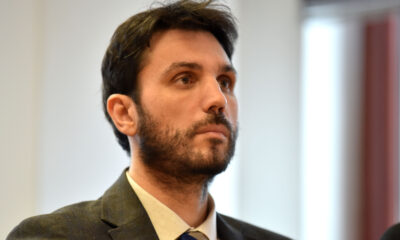
 DRUŠTVO4 sedmice
DRUŠTVO4 sedmiceSLUČAJ RTV PODGORICA: Afere vidljivije od programa
-
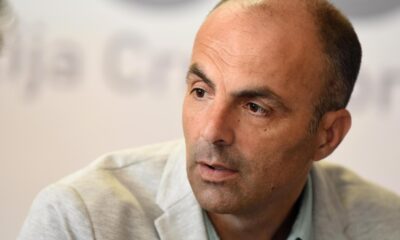
 Izdvojeno4 sedmice
Izdvojeno4 sedmiceBUDVA: KADA RUŠITELJI POSTANU DOBROTVORI: RTCG dobio na poklon filmsku arhivu uništenog Zeta filma
-
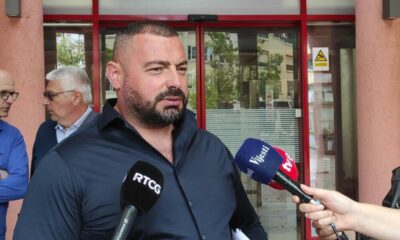
 INTERVJU4 sedmice
INTERVJU4 sedmiceVLADO LAKIĆ, UDRUŽENJE STOČARA DANILOVGRAD: Farmeri su prepušteni sami sebi
-
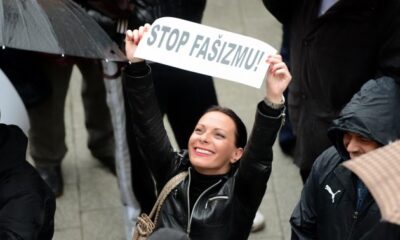
 INTERVJU4 sedmice
INTERVJU4 sedmiceANA LALIĆ, PREDSJEDNICA NEZAVISNOG DRUŠTVA NOVINARA VOJVODINE: Propagandna glasila režima fatalnija su za građane Srbije i od Vučića
-
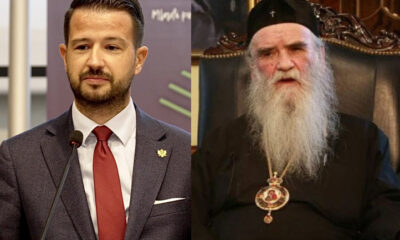
 FOKUS4 sedmice
FOKUS4 sedmicePREDSJEDNIKOV ORDEN AMFILOHIJU, POMIRITELJU: Da je vječno selektivno pamćenje
-
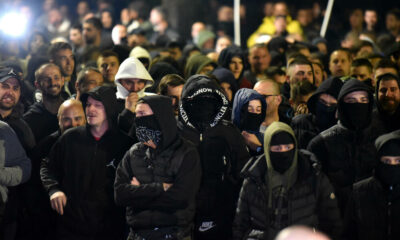
 FOKUS3 sedmice
FOKUS3 sedmicePROVALA MRŽNJE PREMA TURSKIM DRŽAVLJANIMA U CRNOJ GORI: Fašizam ne dolazi, već je došao
-

 DRUŠTVO3 sedmice
DRUŠTVO3 sedmiceISTORIJSKI REVIZIONIZAM U CRNOJ GORI I REGIONU: Put u mrak






